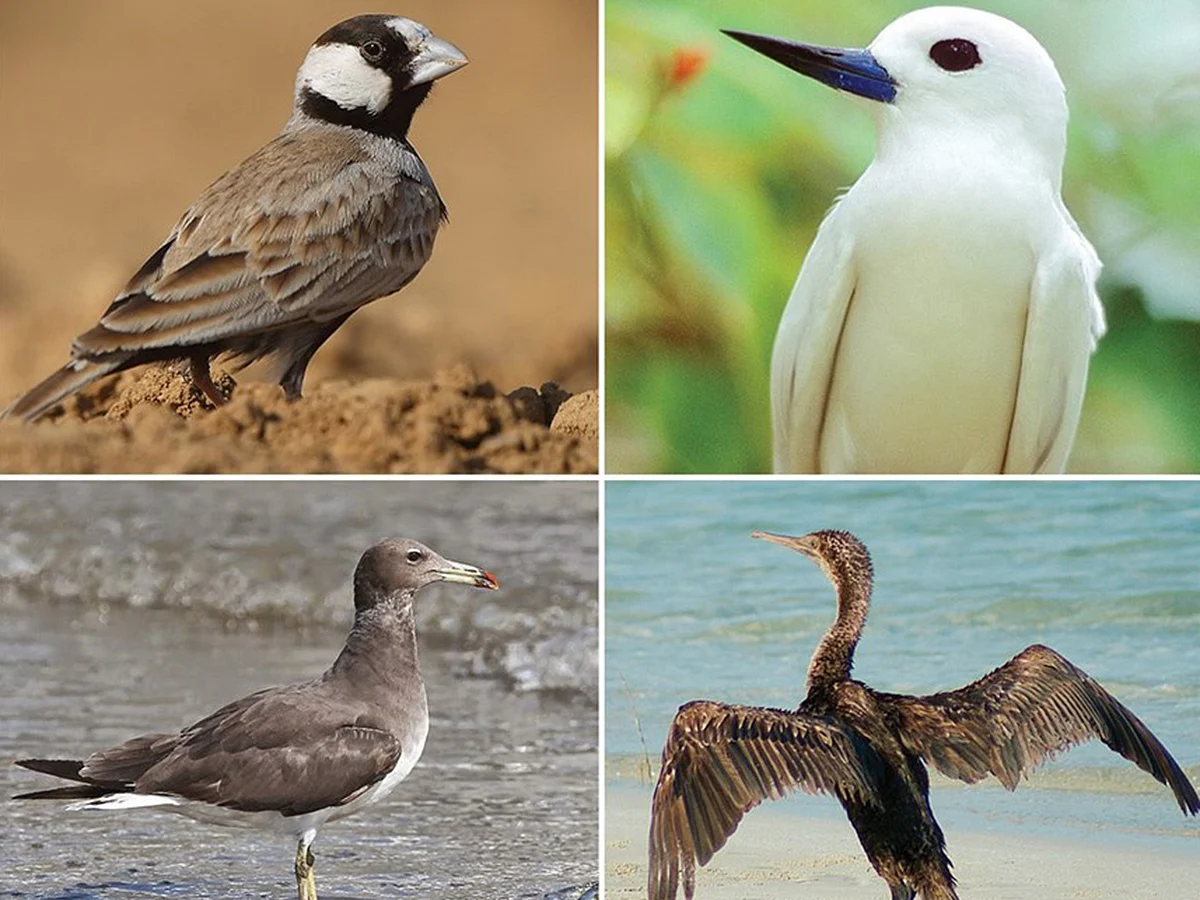Abu Dhabi welcomes two million migratory birds each year
Emirate’s protected islands are home to 426 bird species, including threatened varieties

Abu Dhabi: From coastal wetlands to desert landscapes, the islands of Abu Dhabi provide a safe haven for millions of migratory birds each year. Around two million birds pass through annually — particularly during the summer months — finding food, shelter, and rest within the emirate’s protected natural areas.
Many species vital to the ecosystem, including the Greater Flamingo and various falcons, choose Abu Dhabi as a breeding ground during this period.
The Environment Agency – Abu Dhabi (EAD) confirmed it continues to monitor migratory birds to ensure their safety and protection within nature reserves, reinforcing the emirate’s reputation as a secure seasonal stopover along migration routes.
EAD has urged the public to help maintain safe conditions for wild birds and avoid harmful practices — such as collecting their eggs — that can cause breeding failure. The agency called on residents to refrain from disturbing habitats and to report violations by calling the Abu Dhabi Government’s toll-free number 800555.
426 migratory bird species in Abu Dhabi’s reserves
According to EAD statistics, Abu Dhabi is home to 426 recorded bird species, around 260 of which are found in the Al Wathba Wetland Reserve — the only site in the Arabian Gulf where the Greater Flamingo breeds regularly. This achievement is a testament to EAD’s long-standing conservation efforts.
Since 2011, the Greater Flamingo colony at Al Wathba has bred consistently, making the reserve a key biodiversity landmark. EAD conducts regular summer surveys focusing on stopover points for migratory birds to gather data on populations, assess habitat conditions, and identify migration challenges.
The islands of Abu Dhabi also serve as vital summer sanctuaries for many seabird species arriving from the Indian Ocean to breed — most notably the White-cheeked Tern, an ecologically important species.
Abu Dhabi’s list of threatened bird species
The Zayed Protected Areas Network safeguards about 175 bird species, around 11% of which are classified as threatened under the ‘Abu Dhabi Red List of Threatened Species’.
The discovery of new bird species within the emirate underscores the importance of EAD-managed reserves — such as Al Wathba Wetland Reserve and Bu Sayeef Marine Protected Area — for both migratory and resident birds.
An Emirati reserve of international recognition
Jarnin Island, located 180km northwest of Abu Dhabi city, is a marine oasis and internationally recognised nature reserve providing refuge for numerous bird species, turtles, and other marine life.
In 2003, the International Union for Conservation of Nature (IUCN) listed the island and its surrounding waters among 81 globally recognised protected areas — acknowledged since 1996 for contributions to forest, freshwater, and marine ecosystem conservation, as well as for safeguarding endangered species.
Recently, EAD recorded the rare Red-footed Booby during routine monitoring on Jarnin Island in Al Dhafra, western Abu Dhabi. This species—one of the smallest and rarest in the booby family — inhabits tropical coasts and islands, and is seldom sighted in the Arabian Gulf due to the absence of resident populations in the UAE.
Feeding primarily on fish and squid, the Red-footed Booby plays a vital role in maintaining marine ecosystem balance. Although rare, it is not classified as threatened under the IUCN Red List. Its sighting in Abu Dhabi offers a rare opportunity to study regional wildlife and underscores the importance of preserving natural habitats.
EAD once again urged the public to safeguard environmental conditions for wild birds and avoid harmful practices — particularly egg collection, which can cause breeding failures among sensitive species.
The agency stressed the importance of community collaboration in conservation efforts and encouraged residents to report violations via the government hotline 800555.
EAD reaffirmed its commitment to protecting biodiversity and endangered species through the expansion of protected areas and the implementation of national programmes aligned with the UAE National Biodiversity Strategy.
These initiatives include breeding and reintroducing threatened species — most notably falcons and houbara bustards — into their natural habitats.
Sign up for the Daily Briefing
Get the latest news and updates straight to your inbox
Network Links
GN StoreDownload our app
© Al Nisr Publishing LLC 2026. All rights reserved.
